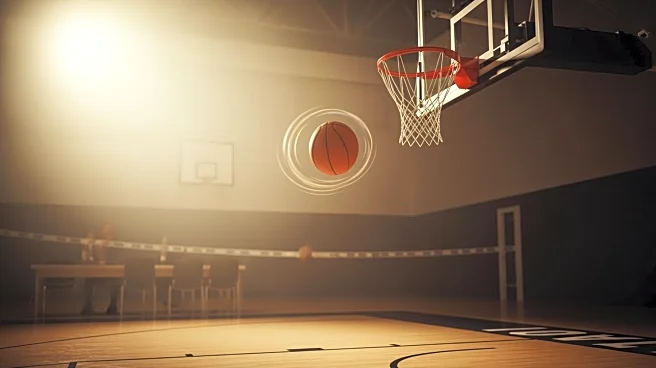What's Happening?
Taylor Groves, a former four-star safety recruit for Ole Miss, has made a significant transition from football to basketball. Groves, who was once pursued by major SEC programs such as Alabama, Auburn,
Kentucky, and Texas A&M, decided to leave football last winter to focus on basketball. This week, he opened the season for Volunteer State Community College with an impressive 46-point performance against Snead State Community College. Groves shot 16-for-28 from the field, 8-for-11 from three-point range, and was perfect from the free-throw line, adding six rebounds and four assists to his stats. His decision to switch sports came after he faced mental challenges at Ole Miss, prompting him to return home to Tennessee to regroup.
Why It's Important?
Groves' transition from football to basketball highlights the flexibility and resilience of athletes who face setbacks in their primary sport. His performance on the basketball court not only showcases his athletic versatility but also places him back on the radar for major college basketball programs. This shift could influence other athletes who may be considering similar transitions, especially those who have faced injuries or other challenges in their initial sport. Groves' story underscores the importance of mental health and personal well-being in sports, as his decision was driven by the need to clear his head and find a new path.
What's Next?
Groves' impressive debut in basketball could lead to increased attention from major college basketball programs, potentially opening doors for scholarships and opportunities at higher levels. As he continues to perform well, he may attract scouts and recruiters looking for talented players who can contribute to their teams. Additionally, Groves' story may inspire other athletes to consider alternative paths in their sports careers, especially if they face similar challenges.
Beyond the Headlines
Groves' journey from football to basketball raises questions about the pressures faced by young athletes in high-stakes sports environments. His experience at Ole Miss and subsequent decision to switch sports highlights the need for support systems that address mental health and provide guidance for athletes navigating their careers. This development could lead to broader discussions about athlete welfare and the importance of providing resources for those who may need to change direction.











